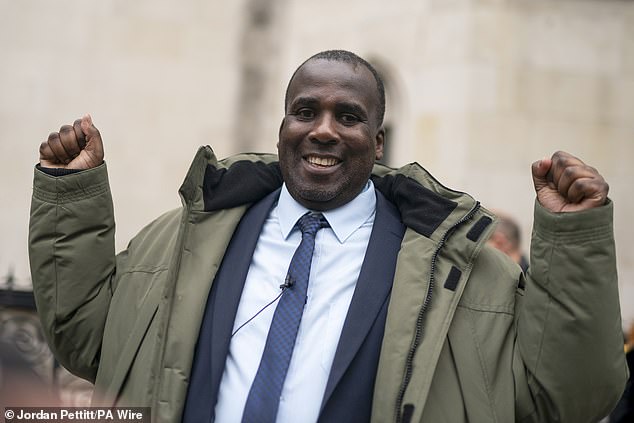A man wrongfully jailed for a murder that took place over three decades ago has finally had his conviction overturned.
Oliver Campbell, who suffers from severe brain damage and learning disabilities, was convicted in 1991 for the fatal shooting of a shopkeeper in Hackney, East London.
Now, after a long legal battle, new evidence has emerged that proves he was not the perpetrator.
Life Sentence Quashed After 33 Years
Campbell’s conviction has been quashed by the Court of Appeal after 33 years, following a two-day hearing in London.
Judges ruled that his conviction for the murder of Baldev Hoondle, who was shot during a robbery in July 1990, was “unsafe.”
The Criminal Cases Review Commission (CCRC), which investigates possible miscarriages of justice, referred the case after reviewing Campbell’s vulnerabilities, including his severe learning disabilities.
Brain Damage and Unreliable Confessions
At the time of his conviction, Campbell was just 21 years old.
He was sentenced to life in prison, despite evidence of his brain damage and learning difficulties that severely impacted his memory and concentration.
This evidence was not fully considered during his trial.
Additionally, the confessions he made to the police were found to be inconsistent and potentially coerced, further casting doubt on his involvement in the crime.
Fresh Evidence and a Long Road to Justice
The judges concluded that had the jury been aware of Campbell’s cognitive impairments, they would have evaluated his confessions in a different light.
His barrister, Michael Birnbaum KC, pointed to the fact that Campbell’s brain damage made it nearly impossible for him to provide accurate and consistent statements during police interviews.
Campbell had initially denied involvement in the crime but later changed his story after being subjected to lengthy interrogations without proper legal representation.
The Role of the British Knights Cap
A key piece of evidence used to convict Campbell was a British Knights baseball cap found near the crime scene.
While it was established that Campbell had purchased the hat, it had been stolen before the robbery took place.
Despite this, the prosecution tied the cap to Campbell, further bolstering the case against him.
However, new evidence showed that hairs found inside the cap did not match his, and witnesses described the gunman as significantly shorter than Campbell.
A Wrongful Conviction Comes to Light
Campbell was released from prison on licence in 2002 but has lived under strict conditions ever since.
His co-defendant, Eric Samuels, who was acquitted of murder but served time for robbery, had long maintained that Campbell was not involved in the shooting.
Unfortunately, this crucial testimony was not presented to the jury during the original trial.
For decades, Campbell fought to clear his name, with earlier appeals rejected.
It wasn’t until new evidence was reviewed in 2022 that the CCRC decided to take his case back to court, leading to the recent overturning of his conviction.
What Happens Next?
With his conviction now quashed, Campbell may finally be able to live without the restrictions that have bound him since his release.
However, he acknowledges the bittersweet reality of the situation, stating, “Whatever happened in the past, they can’t bring it back.
The person who did the crime is still out there, and the shopkeeper’s friends and family have not had justice.”
As this case continues to unfold, the ruling shines a spotlight on how vulnerable individuals can be wrongfully convicted, and the importance of organizations like the CCRC in preventing further miscarriages of justice.
Mine Crypto. Earn $GOATS while it is free! Click Here!!